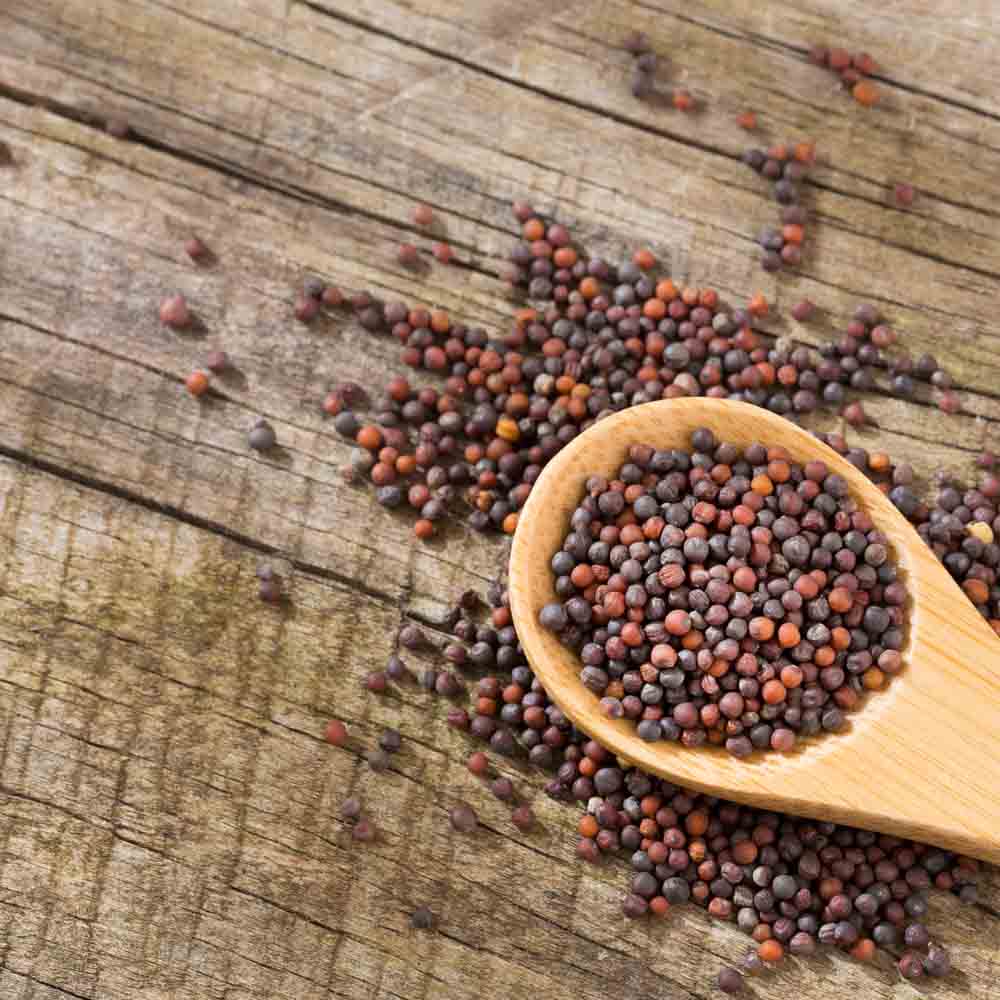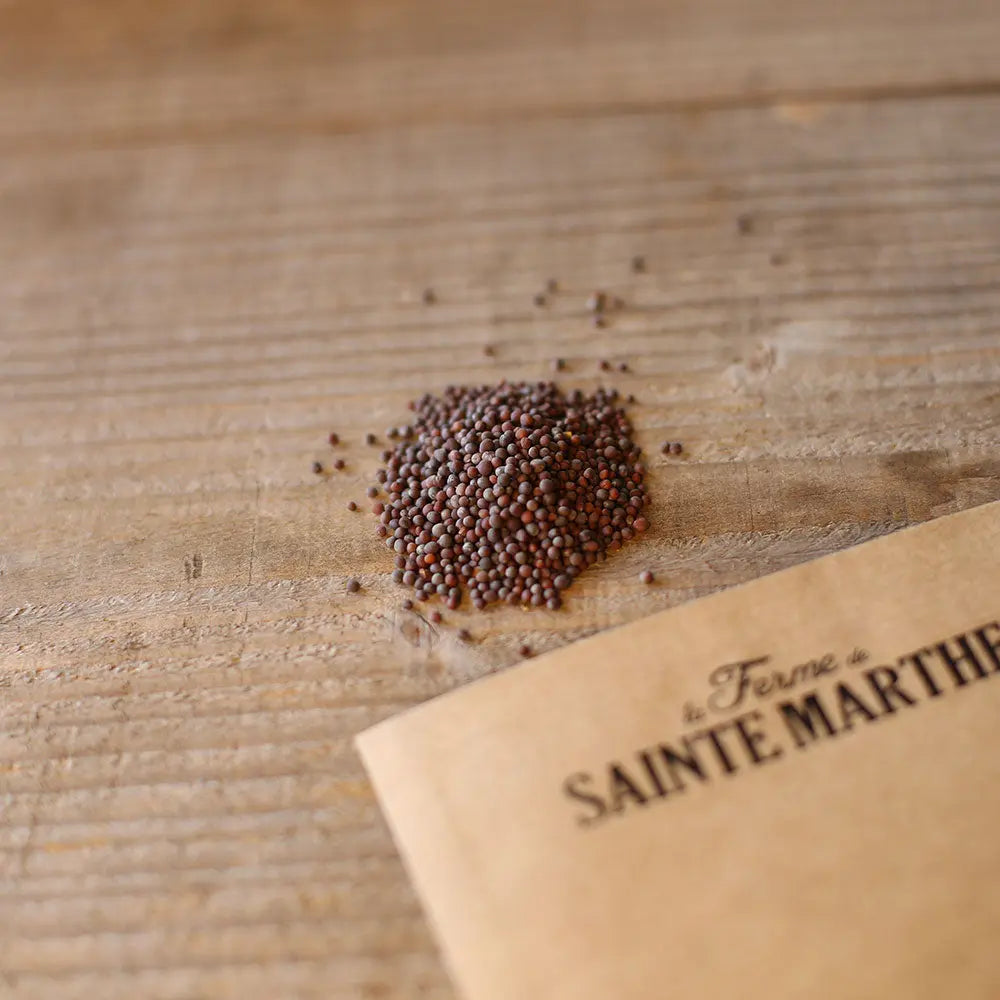BLACK MUSTARD NT
Brassica nigra
Black mustard is an annual, with yellow flowers, melliferous, with multiple uses:
- in cooking, in mescluns or to make your own mustard,
- in medicinal,
- to improve the soil!
Black mustard is often cultivated for its precious seeds, which turn red and then black when ripe. Once crushed and combined with other ingredients, they produce the very famous condiment called "mustard."
Its seeds and their oil are also used in the composition of many spice blends, notably Indian curries.
The young leaves, with a slightly spicy flavor, are eaten in salads, while older leaves lose their spiciness when cooked.
Medicinal Properties
Black mustard seeds have many medicinal properties.
Soil Improvement
Black mustard is also widely used as a soil improver.
Its powerful roots have bactericidal and nematocidal properties, allowing the soil to be loosened and cleaned.
Fast growing, it prevents weeds from growing.
Very sensitive to frost, it will be quickly destroyed during the winter.
It can be combined with other soil improvers that are slower to establish but more resistant to cold.
Do not use before growing brassicas (cabbages).
Successful Sowing of Black Mustard
To harvest seeds: sow April-May, harvest at the end of summer.
Soil improvement: sow from March to October (before spring crops or after summer crops). Cut and incorporate into the soil before flowering.









